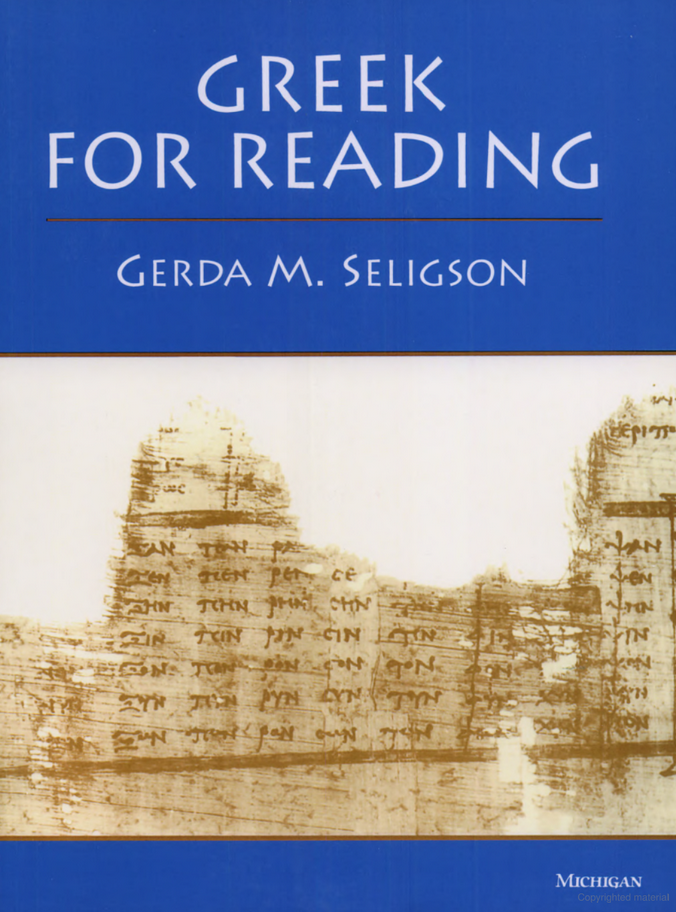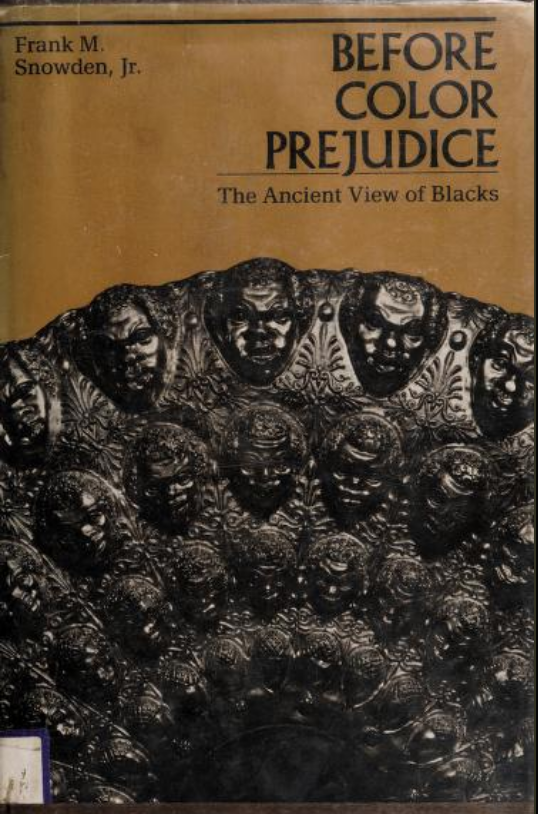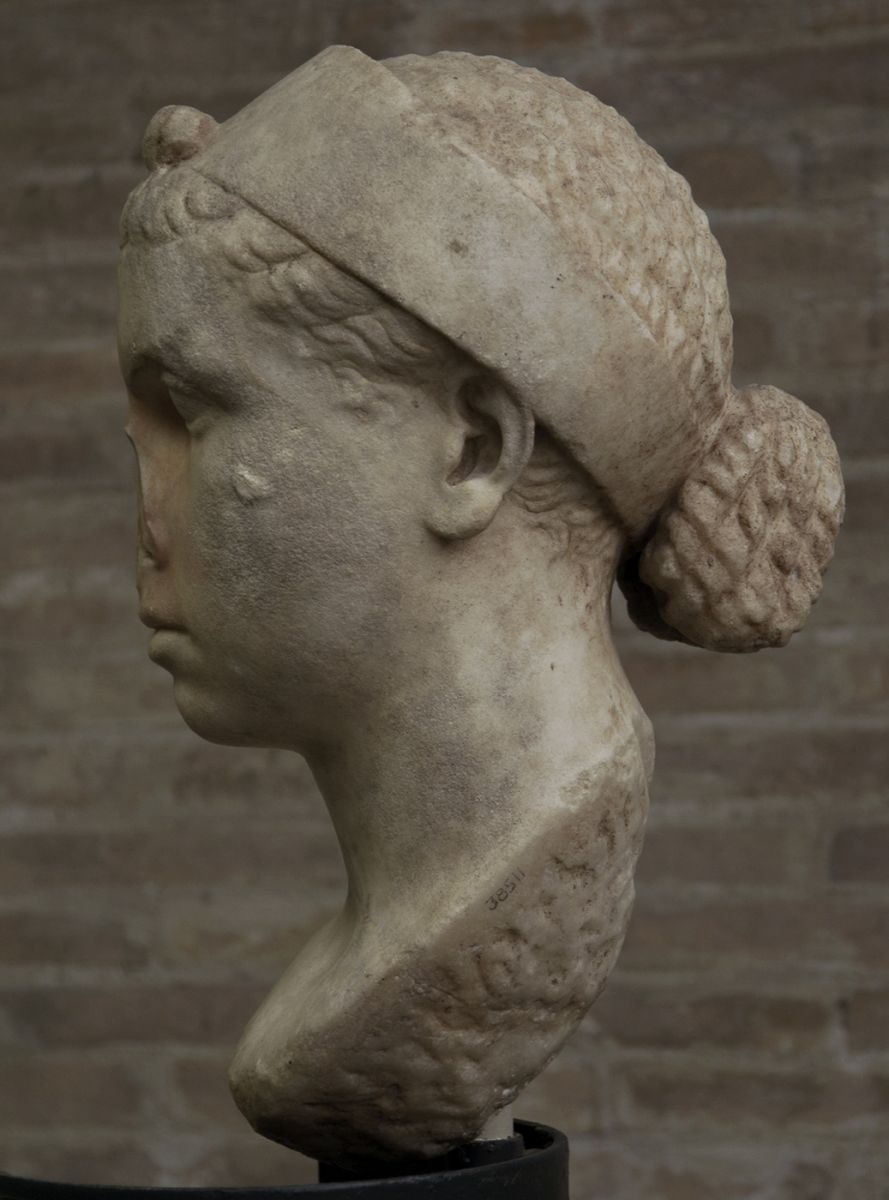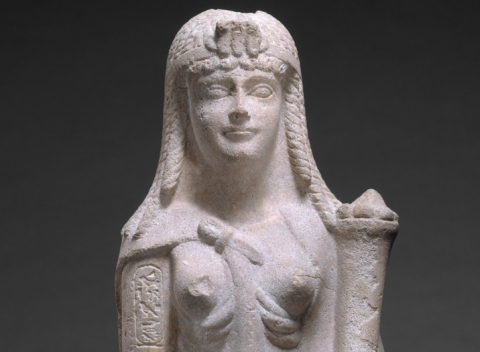Claire Catenaccio
January 13, 2020
Our second interview in the Women in Classics series is with Shelley Haley, Edward North Chair of Classics and Professor of Africana Studies at Hamilton College. This is the second of a two-part interview with Prof. Haley, which picks up at the point when she decided to apply to graduate school to study Classics.
CC: How did you decide to apply to graduate school?
This was a very turbulent time in American history. I was fed up with the United States of America, absolutely fed up. I remember the conversations we used to have about the women’s movement. This was back in the dark ages. There were three or four white women on my floor in college having a deep discussion, wringing their hands and saying, “But how, how, how are we going to have a family and a career? How?” In my head I was just frustrated. My mother, my grandmother, her mother before her, all of them always had to work, and always had family. It can be done. I think that was my first introduction to black feminism, and to the line that divides it from white feminism. I had had enough.
When I decided to apply to graduate school, I didn’t want to go anywhere in the United States. I only applied to Canadian universities. I applied to McMaster and to McGill. I got into both. As a senior I was in the process of getting landed immigrant status, so that I could get funding in Canada. Then one of my professors, Dr. Mills, came up to me and said, “This fellowship came across my desk, and I think you’re perfect for it. I think you should apply for it.” It was called the Danforth Fellowship. It paid for four years of graduate school, which was wonderful, but the catch was that it was only for institutions in the United States. I applied, in a halfhearted way. And lo and behold, I was a finalist.
The Danforth selection committee set up an interview Rochester, New York. Two days before the interview, I came down with a wicked case of the flu. I was so sick. I was too sick to fly from Syracuse to Rochester. Dr. Mills, the wonderful man who had encouraged me to apply, drove me all the way to Rochester. He waited while I did the four-hour interview, and then he drove me back.
CC: How did the interview go?
I thought I did lousy, because I was so sick. But I got the fellowship! One of the people who interviewed me was none other than the famous professor Helen North. Years later, she told me, “You were the most impressive person that we interviewed.” That was very nice to hear. I remember I had written an essay for that application in the form of a dramatic dialogue between Homer and Virgil, in which Virgil defended himself against the claims of plagiarism. Helen North said to me, “Really, you should print that up and publish that.”
CC: How did you choose a graduate school?
I applied to a number of schools, because the deadlines were already past for most American graduate programs. I ended up going to the University of Michigan. At that time, back in 1972, Michigan was called “The Harvard of the Midwest.” It was very conservative. All the professors called each other “Mister.” The only female professor when I entered was Gerda Seligson. She was my lifeline. She was a Jewish woman from Germany, who had escaped the Nazis and gone to England. Boy, it’s too bad you can’t interview her, because she had one hell of a life! At one point, she had to work on a potato farm because no one would hire her to do anything else. Not because she was Jewish, but because she was German! There was real distrust of Germans in America after the war. Anyway, she was just an amazing woman. She didn’t take any nonsense.

CC: What were you interested in working on at the time?
I had no idea! I liked Latin, and I liked prose. But like I said at the beginning, I’m an accidental Classicist. I was intrigued by D.C. Earl’s “The Political Vocabulary of the Roman Republic.” For my dissertation, I wrote about the role of amicitia in the life of Pompey. But I have not looked at it since I defended it, not once.
I had a difficult time in graduate school in some ways. I remember taking a class on Herodotus. I was not the only woman in the class, but I certainly was the only student of color. The professor determined your participation grade by a tally of the number of times that he called on you. And this man never called on me. I would raise my hand. I was always prepared. But he never called on me. He just looked right through me, the whole semester. When I got my grade, it was bad. I went to his office and I said, “I don’t understand this grade. I did really well on the exams. I never missed a class.” And he said, “You didn’t participate as fully as some of the other students.” He wanted to laugh it off. But I was mad, because the whole thing was biased to start with, since the grade was based on the professor calling on people. He did not like that. People don’t like it when you use the word “biased.” “Litigate,” “biased,” “racist,” don’t use those words! He said, “Well, I think we need to bring the Chair in about this if that’s your attitude.” I said, “Go ahead! I’m not afraid of him. Go ahead! Bring him in. I want to hear how you defend yourself. I’ve got witnesses. You never called on me.” He ended up changing the grade, but not enough. Unfortunately, that kind of soured me on taking Greek at Michigan.
CC: Tell me about your first job.
When I got my degree, in 1977, it was a bad time for jobs. There was an oil embargo, there was the whole Watergate scandal. Not much was available. And Michigan had a hierarchy, designed to support white men coming up through the ranks. It was subtle. But if you were a woman, the professors wouldn’t push for you in the same way.
But I did get a job, as a leave replacement at Luther College in Decorah, Iowa. I worked there from 1977 to 1978. The funny thing about it was that was within two weeks of getting my PhD, I found out I was pregnant. I already had the job at Luther. I wrote to them and said, “A little wrinkle, but this isn’t going to stop me. I just wanted you to be aware.” And they said, “That’s fine. We’ll work something out.” This was before maternal leave. I was naïve, and it was much harder than I thought it was going to be to have a baby and return to teaching. But the job at Luther was a transformational experience, because it was my first exposure to a small liberal arts college. I enjoyed it a lot.
While I was at Luther, I got recruited by Howard University in Washington, D.C. The Dean actually came out to Iowa and offered me the job, before it was even advertised. He said, “You’re a black woman with a PhD in Classics. We want you at Howard.” I was flattered. I said yes. I worked at Howard from 1979 to 1985.
CC: What was it like to work at Howard University?
It was very triggering because it reminded me of my childhood experience at Hampton. It was that same kind of colorist mentality. Everybody liked me because I was married to a white man, which was weird. Classics also occupied a very odd position in the university. Howard is a historically black university, but the Classics department is an oasis of whiteness. The students are of color, but most the professors are white. At time when I was hired, another black woman was also recruited to join the department. Her name was Carrie Cowherd. She had already been denied tenure at the University of Wisconsin at Milwaukee. She was older than I was, but they also hired her as an Assistant Professor. The great Frank Snowden had retired, but he still taught in the department and was still very much a force there. We called him “Zeus,” because he could thunder!

(Harvard University Press, 1983).
CC: But you felt uncomfortable there?
I did. I felt a lot of cognitive dissonance. In a black environment with storied traditions and history, no one pushed against the whiteness of Classics. I was teaching a course of women in the ancient world and I said something about Cleopatra as an African ruler. A couple of days later, Frank Snowden caught me walking down the hall and he said, “Did you say Cleopatra was black?” And I said, “No, I didn’t say that.” Because I didn’t. I didn’t say that. I told him that I said she was an African ruler. He said, “That’s not true.” But I disagreed.
CC: When did you become interested in the issue of race in antiquity?
While I was at Howard. It started with Cleopatra. She haunted me. I had a dream where Cleopatra came to me and said, “Why aren’t you telling my story?” When I woke up, I answered her in my head, “There’s nothing to tell! What is there to say except what’s already been said?”
At Howard I taught a course on women in antiquity. We were talking about Cleopatra, and I explained that she was a Greek ruler by genealogy. I had checked out the Cambridge Ancient History and brought it to class, and I showed my students the genealogy that’s printed in the back of the book. One student, whose name was Roy, pointed to the question mark by Cleopatra’s grandmother in the genealogy. He asked me, “What does this mean?” I said, “That just means they don’t know her name.” But he pointed below the question mark, where they had put in parentheses “Egyptian concubine.” And Roy asked me, “What about that?” Honestly, until that student put his finger there, I had never seen it. That just goes to show how manipulative a master narrative can be. I never saw until that moment that even the Cambridge Ancient History can leave room for interpretation, can leave open a space for you to imagine the life of that Egyptian concubine who became the grandmother of Cleopatra.
In the early 1990’s, I had a serious midlife crisis. I think it was brought on by feeling rejected by my black students at Hamilton. I was not invited to celebrations. I was not asked to sit on panels about what it was like to be a black professor. I was not asked to teach in the summer bridge program for incoming students of color. All of these slights made me question myself. I thought, “Maybe I’m really not helping students of color. Maybe I’m not being an asset to them. Maybe I need to get out of this.” I tried other things. I taught Women’s Studies, I taught Africana Studies. But there was still something missing. I had a lot of long conversations about it with my husband, and I just knew that I couldn’t be the first person of African descent to have these doubts about the field. I started researching African American men who had studied Classics. The 19th century is full of them. I got very excited. I went around the country, lecturing about this one and that one. And then I had a further revelation and started doing research on women of African descent who had studied Classics. I learned about Fanny Jackson Coppin, Anna Julia Cooper, and Mary Terrell. These women went through the same thing I did. They had white men telling them they couldn’t do this, and white women telling them they couldn’t do this, and then they themselves questioned whether they could do it. But they kept going, and they did great things.

Image by Sergey Sosnovskiy (CC BY-SA 4.0).
CC: How do you think the field is changing, both for people of color and for women?
I’m worried about it. In my experience, we’ve taken the old-boy network and replaced it with the old-girl network, where all the girls are white. These women do not understand intersectionality. When they think they understand it, they distort the concept so that race is always excluded. I’ve been angered by white women in Classics who co-opt progressive movements for their own benefit. I do not dismiss the pain or the injustice of what has happened to my white female colleagues, but there’s too much hypocrisy. But your question was about change, and some things have changed. I would say there’s more visibility for white women in Classics than there used to be. But more change is coming. How should I put it? Practicing Classicists of color are now reaching a critical mass, particularly in the SCS. Now you’re starting to see the pushback.
CC: What advice would you give to your younger self?
That’s a really interesting question. One thing that I find frustrating is that people perceive me in a certain way. I’ve heard myself described as “outspoken” and “angry.”
CC: Maybe “impertinent,” like your Social Studies teacher said?
Yes, impertinent! [laughs] But I’m not. Sometimes I am angry, yes. There’s a lot to be angry about. But I’m not going to stop speaking out. I’m not going to stop speaking my truth just because it makes people uncomfortable. I have suffered many macro- and micro-aggressions, but it’s not going to stop me.
CC: Do you see any positive changes on the horizon?
You know, I go back and forth. I want to believe. I want to believe that you younger folks are going to take these issues of inequality by the horns. I hope you can sustain the force to change a deeply embedded issue. It’s not going to happen overnight.
** Readers may also be interested in the autobiographical material contained in Dr. Haley’s essay, “Black Feminist Thought and Classics: Re-membering, Re-claiming, Re-empowering,” in Nancy Sorkin Rabinowitz and Amy Richlin, ed. Feminist Theory and the Classics (Routledge, 1993): 23-43.
Header: Statue of a Ptolemaic Queen, perhaps Cleopatra VII, 200–30 BCE, Metropolitan Museum of Art, New York City, New York. Image in the Public Domain.
Authors


